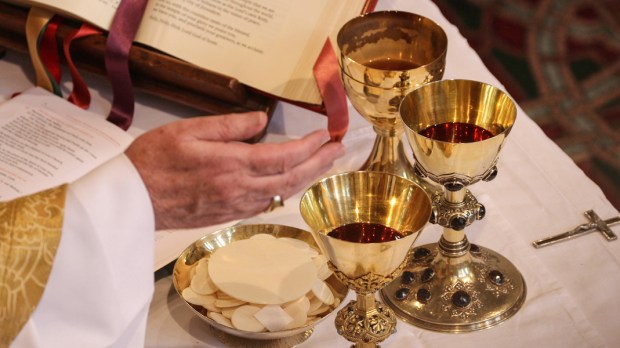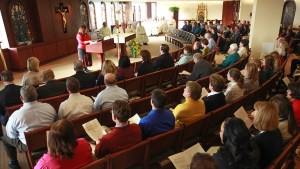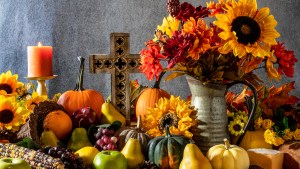In most cases, the Catholic Church’s calendar of feasts is separate from secular celebrations.
Western culture has adopted some of the Church’s feasts, such as Christmas, Easter and Valentine’s Day, into its approved holidays.
On the flip side, there are one or two secular holidays that have been in turn adopted by the Catholic Church.
Thanksgiving Day in the United States is one of those secular celebrations that has been incorporated into the local Catholic Church’s liturgical year.
Thanksgiving Day in the Roman Missal
The US Bishops have approved Mass prayers that are included in the English language Roman Missal, such as this opening prayer:
Father all-powerful,
your gifts of love are countless
and your goodness infinite;
as we come before you on Thanksgiving Day
with gratitude for your kindness,
open our hearts to have concern
for every man, woman, and child,
so that we may share your gifts in loving service.
Through our lord Jesus Christ, your son,
who lives and reigns with you in the unity of the holy spirit, one God, for ever and ever.
There is also a Prayer over the Offerings:
God our Father,
from whose hand we have received generous gifts
so that we might learn to share your blessings in gratitude,
accept these gifts of bread and wine,
and let the perfect sacrifice of Jesus
draw us closer to all our brothers and sisters in the human family. Through Christ our lord.
The local liturgical calendar itself ranks it as an Optional Memorial on the Fourth Thursday in November.
While Thanksgiving is a secular holiday, the Church has seen in it a perfect way to give thanks to God.
One of the primary reasons why the Mass is an appropriate way to celebrate Thanksgiving Day is because the Greek word Eucharist means “thanksgiving.”
The Mass has always been associated with a desire to give thanks to God for the many blessings that we have received, and the Church wants to encourage these religious connotations of the widely celebrated secular holiday.



